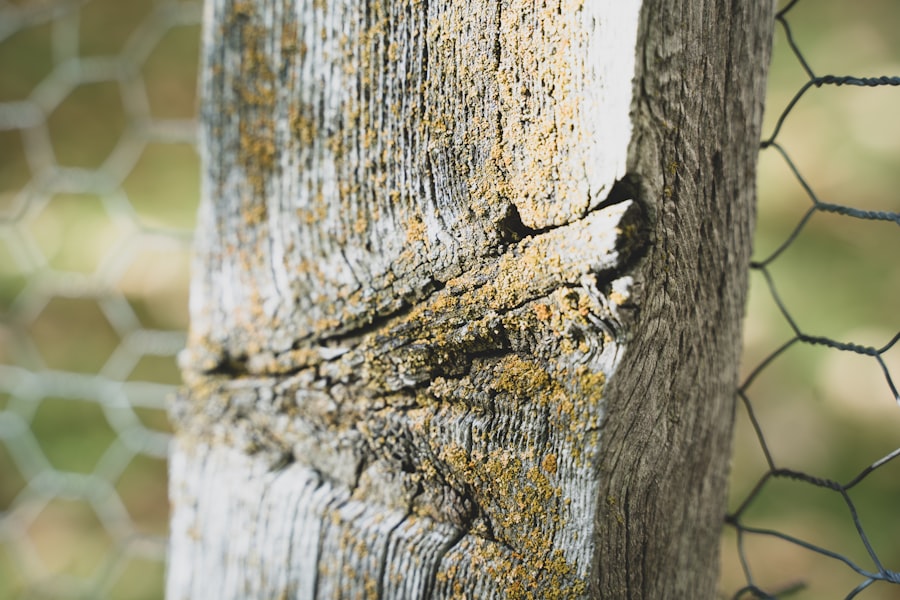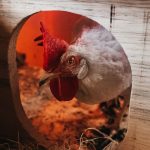Chicken-proof fencing is a crucial component of responsible poultry keeping. It serves multiple purposes, including containing chickens within a designated area, protecting them from predators, and preventing them from causing damage to neighboring properties or gardens. A properly constructed fence ensures the safety of the chickens while also maintaining good relations with neighbors and local wildlife.
Effective chicken-proof fencing typically consists of sturdy materials such as wire mesh or wooden slats, with a height sufficient to prevent chickens from flying over. The bottom of the fence should be buried or secured to prevent chickens from digging underneath. Additionally, the fence should have small enough openings to prevent chickens from squeezing through.
Implementing a reliable chicken-proof fence allows poultry keepers to enjoy the benefits of raising chickens, such as fresh eggs and natural pest control, while minimizing potential conflicts and safety risks. It also helps create a controlled environment for the chickens, reducing the likelihood of them wandering into dangerous areas or encountering harmful substances. By investing in proper fencing, chicken owners demonstrate responsible animal husbandry and contribute to the overall well-being of their flock and the surrounding community.
Table of Contents
- 1 Choosing the Right Type of Fence
- 2 Installing the Fence: Tips and Tricks
- 3 Maintaining the Fence for Long-Term Effectiveness
- 4 Alternatives to Fencing for Chicken Control
- 5 Dealing with Persistent Chickens: Additional Measures
- 6 Creating a Safe and Secure Environment for Your Property
- 7 FAQs
- 7.1 What is a fence to keep chickens out?
- 7.2 Why would someone need a fence to keep chickens out?
- 7.3 What are the different types of fences used to keep chickens out?
- 7.4 How high should a fence to keep chickens out be?
- 7.5 Are there any regulations or restrictions on building a fence to keep chickens out?
Key Takeaways
- A chicken-proof fence is essential for protecting your property and garden from the damage caused by chickens.
- When choosing the right type of fence, consider the size and behavior of your chickens, as well as the layout of your property.
- When installing the fence, make sure it is securely anchored to the ground and tall enough to prevent chickens from flying over.
- Regular maintenance of the fence is crucial for long-term effectiveness, including checking for damage and reinforcing weak spots.
- Alternatives to fencing for chicken control include using chicken wire, electric fencing, or natural barriers like hedges or shrubs.
- Dealing with persistent chickens may require additional measures such as using deterrents, creating designated chicken areas, or seeking professional help.
- In conclusion, creating a safe and secure environment for your property requires careful consideration of the type, installation, and maintenance of a chicken-proof fence.
Choosing the Right Type of Fence
Property Size and Chicken Population
The size of your property and the number of chickens you have are crucial considerations. For smaller properties with a few chickens, a simple wire mesh fence may be sufficient.
Fence Material and Height
However, for larger properties or areas with more predators, a sturdier fence made of wood or metal may be necessary. The height of the fence is also vital, as chickens can fly short distances. A fence that is at least 6 feet tall is generally recommended to keep chickens contained.
Fence Design and Aesthetics
In addition to the practical considerations, the aesthetics of the fence should not be overlooked. The spacing between the fence posts or mesh should be small enough to prevent predators from squeezing through or reaching in to grab a chicken. A well-designed fence can enhance the overall look of your property while still serving its practical purpose.
Installing the Fence: Tips and Tricks

Once you have chosen the right type of fence for your chickens, it’s time to install it properly to ensure its effectiveness. Start by marking out the perimeter of the chicken enclosure and clearing any obstacles or debris that could interfere with the installation process. Next, set the corner posts firmly in the ground, making sure they are level and secure.
These posts will provide the framework for the rest of the fence. After the corner posts are in place, continue to set the line posts at regular intervals along the perimeter of the enclosure. Use a level to ensure that each post is straight and plumb before securing it in the ground.
Once all the posts are in place, attach the fencing material securely to each post, making sure there are no gaps or weak spots where chickens or predators could gain access. In addition to the physical installation of the fence, consider adding some extra security measures such as burying the bottom of the fence underground or adding an apron of wire mesh to prevent predators from digging underneath. You may also want to install a gate for easy access to the chicken enclosure while still maintaining security.
Taking the time to install the fence properly will ensure that it provides long-term protection for your chickens.
Maintaining the Fence for Long-Term Effectiveness
After installing a chicken-proof fence, it’s important to maintain it regularly to ensure its long-term effectiveness. Inspect the fence periodically for any signs of wear and tear, such as loose posts, sagging wire, or rusted metal. Repair any damage promptly to prevent predators from exploiting weak spots in the fence.
In addition to physical maintenance, consider implementing some proactive measures to enhance the security of the fence. This could include adding deterrents such as motion-activated lights or sound devices to scare off potential predators. You may also want to trim back any vegetation that could provide cover for predators near the fence line.
Regularly inspecting and maintaining your chicken-proof fence will not only keep your chickens safe but also save you time and money in the long run by preventing costly repairs or losses due to predator attacks. By staying proactive and attentive to the condition of the fence, you can ensure that it continues to provide reliable protection for your chickens for years to come.
Alternatives to Fencing for Chicken Control
While a chicken-proof fence is an effective way to contain and protect your chickens, there are also alternative methods for chicken control that may be suitable for certain situations. One option is using electric poultry netting, which provides a portable and flexible solution for containing chickens in various areas of your property. Electric netting can be easily moved and adjusted as needed, making it ideal for rotational grazing or temporary enclosures.
Another alternative to traditional fencing is using chicken tractors or mobile coops, which allow chickens to graze freely while still providing some level of containment and protection. These structures can be moved around your property to give chickens access to fresh pasture while keeping them safe from predators. For urban or suburban settings where traditional fencing may not be practical or allowed, consider using chicken harnesses or leashes to allow your chickens supervised outdoor time without the need for a permanent enclosure.
This can be a great option for providing enrichment and exercise for your chickens while still maintaining control over their movements.
Dealing with Persistent Chickens: Additional Measures

Visual Deterrents
One effective way to reinforce your fence is to use visual deterrents. Scarecrows or reflective tape placed near the fence line can discourage chickens from attempting to escape. These visual cues can disrupt their natural instincts and make them think twice about trying to breach the fence.
Keeping Chickens Occupied
Another approach is to provide alternative sources of entertainment and enrichment within the chicken enclosure. This can include hanging treats or toys for them to peck at, creating dust bathing areas, or providing perches and climbing structures for them to explore. By keeping your chickens occupied, they’ll be less inclined to seek out trouble elsewhere.
Seeking Expert Advice
If persistent chickens continue to be a problem despite these measures, consider consulting with a professional animal behaviorist or poultry expert. They can provide guidance on addressing specific behavioral issues and implementing effective solutions to keep your flock in line.
Creating a Safe and Secure Environment for Your Property
In conclusion, having a chicken-proof fence in place is essential for creating a safe and secure environment for both your chickens and your property. By choosing the right type of fence, installing it properly, and maintaining it regularly, you can ensure that your chickens are contained and protected from potential threats. In addition to traditional fencing, there are alternative methods for chicken control that may be suitable for certain situations, such as electric poultry netting, chicken tractors, or harnesses.
These options provide flexibility and versatility for managing your chickens while still maintaining control over their movements. For persistent chickens that continue to cause trouble despite having a well-constructed fence in place, additional measures such as visual deterrents and providing enrichment within the enclosure can help reinforce the effectiveness of the fence and discourage unwanted behavior. Overall, by taking proactive steps to create a safe and secure environment for your chickens, you can enjoy all the benefits of keeping these feathered friends while minimizing potential problems and conflicts with neighbors and wildlife.
A well-maintained chicken-proof fence not only provides protection for your chickens but also contributes to a harmonious relationship with your community.
If you’re looking for ways to keep chickens out of your garden, you may also be interested in learning how to insulate a chicken coop to keep your feathered friends warm during the winter months. Check out this helpful article on how to insulate a chicken coop for some great tips and tricks.
FAQs
What is a fence to keep chickens out?
A fence to keep chickens out is a barrier designed to prevent chickens from entering a specific area, such as a garden or yard. It is typically constructed using materials such as wire mesh, wood, or metal to create a physical barrier that chickens cannot easily pass through.
Why would someone need a fence to keep chickens out?
People may need a fence to keep chickens out to protect their gardens, flower beds, or other areas from being damaged by chickens. Chickens are known to scratch and peck at the ground, which can result in damage to plants and landscaping.
What are the different types of fences used to keep chickens out?
Common types of fences used to keep chickens out include wire mesh fences, picket fences, and electric fences. Wire mesh fences are often used for their durability and ability to effectively keep chickens out, while electric fences provide a deterrent through a mild electric shock.
How high should a fence to keep chickens out be?
The height of a fence to keep chickens out will depend on the size and breed of the chickens. In general, a fence should be at least 4-6 feet high to effectively prevent chickens from flying or jumping over it.
Are there any regulations or restrictions on building a fence to keep chickens out?
Regulations and restrictions on building a fence to keep chickens out may vary depending on local zoning laws and homeowners’ association rules. It is important to check with local authorities and review any applicable regulations before installing a fence.
Meet Walter, the feathered-friend fanatic of Florida! Nestled in the sunshine state, Walter struts through life with his feathered companions, clucking his way to happiness. With a coop that’s fancier than a five-star hotel, he’s the Don Juan of the chicken world. When he’s not teaching his hens to do the cha-cha, you’ll find him in a heated debate with his prized rooster, Sir Clucks-a-Lot. Walter’s poultry passion is no yolk; he’s the sunny-side-up guy you never knew you needed in your flock of friends!







